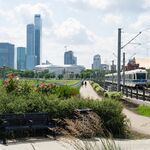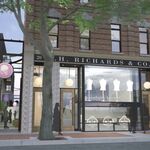IanO
Superstar
Akin to 4-6-8 EPS bike cops patrolling around town.
Teams of 2 boys/girls.
Where is Batman when you need him?
Teams of 2 boys/girls.
Where is Batman when you need him?
Last edited:
a bit of tangent but another thing this country could use is a two year mandatory service to your country. Not necessarily military but humanitary service where you help out during natural disasters for example, help build communities, etc. In the meantime, you gain structure and maybe also exposure and training to certain trades or other jobs. And maybe allow people to get an exemption from this if they are registered in post secondary or have full time employment. But for all the other lost souls/young men, something like this would probably keep them out of trouble and also give them valuable skills. I doubt they would come out of this being worse people.
I could not disagree more. While I believe governments should have some degree of "control" over its citizens, mandatory service is not something I can get behind, AT ALL. The government telling people that they'll have to undergo mandatory service if they don't have a full-time job, and that is a very broad definition... would you consider someone who does app deliveries, or Uber, or self-employed people trying to get their businesses off the ground to have full time jobs? What jobs are acceptable under that definition? Is it income related?a bit of tangent but another thing this country could use is a two year mandatory service to your country. Not necessarily military but humanitary service where you help out during natural disasters for example, help build communities, etc. In the meantime, you gain structure and maybe also exposure and training to certain trades or other jobs. And maybe allow people to get an exemption from this if they are registered in post secondary or have full time employment.
All fair questions. But yeah the intention would just be to provide structure to people who are lacking it. Freedom is fantastic but unfortunately not everyone can handle full freedom. I think some people would do better with some guidance in their lives. But yeah, all those sorts of questions would need to be addressed for sureI could not disagree more. While I believe governments should have some degree of "control" over its citizens, mandatory service is not something I can get behind, AT ALL. The government telling people that they'll have to undergo mandatory service if they don't have a full-time job, and that is a very broad definition... would you consider someone who does app deliveries, or Uber, or self-employed people trying to get their businesses off the ground to have full time jobs? What jobs are acceptable under that definition? Is it income related?
And how do you decide the rules for this? Does it apply to immigrants? Does it have power to reach within the Reservations? (and if it does, should it?) Why two years?
And what kind of penalty are we talking about in case of someone evading from it? Withholding civil rights (voting, passports, eligibility for public office or employment) like some countries do? (Israel, Brazil and Finland, for example)? Is it right to condition someone's full exercise of their rights to mandatory service of any kind?
I understand the intention behind it, and I believe people proposing this mean well, but this is something I can never get behind, at all. It gives governments too much power over aspects of people's lives where it should never interfere at all.
Lots of programs actually do this.I don't mind this idea, I have imagined a somewhat similar potential solution for the homelessness crisis:
I always wondered why there wasn't some sort of system where, if you were homeless (or just struggling to get by) you could have the option to work for municipalities (or maybe even other levels of government) in roles like park and street cleanup, building maintenance and cleaning, etc. You would be provided with room (something very modest but a private room) and board, in addition you would get a modest salary.
This has a few major advantages:
1. Gets people off the street and gets them into a working position
2. You get clean parks, streets and public buildings, etc
3. Helps people in a rough spot get back on their feet easier
This would be expensive, but I feel like that cost would be made up for in reducing negative externalities.
You mean something like this that we already have in Edmonton? Only that they are non profit and not government.I don't mind this idea, I have imagined a somewhat similar potential solution for the homelessness crisis:
I always wondered why there wasn't some sort of system where, if you were homeless (or just struggling to get by) you could have the option to work for municipalities (or maybe even other levels of government) in roles like park and street cleanup, building maintenance and cleaning, etc. You would be provided with room (something very modest but a private room) and board, in addition you would get a modest salary.
This has a few major advantages:
1. Gets people off the street and gets them into a working position
2. You get clean parks, streets and public buildings, etc
3. Helps people in a rough spot get back on their feet easier
This would be expensive, but I feel like that cost would be made up for in reducing negative externalities.

 www.hiregood.ca
www.hiregood.ca
Yes, the issue is not so much unaffordable housing, but adequate social and other support for people who have little or no income.Lots of programs actually do this.
Most homelessness these days is not due to lack of jobs/money/opportunities, but complex mental, drug, and social issues individuals are facing.
It’s one thing to lose your job in a recession and not have work and to lose your housing. It’s a whole other thing to help someone with schizophrenia who grew up in foster care after being sexually abused as a child by birth parents, who were also substance users, and who now is also a drug user…very hard to help those people hold down any sort of job and to file healing/restoration to society/community.
Yes, absolutely inadequate social programs and support are a major, and likely the biggest contributor. However, the rising cost of housing (yes even in relatively affordable Edmonton) is still a major factor pushing people onto the streets.Yes, the issue is not so much unaffordable housing, but adequate social and other support for people who have little or no income.




